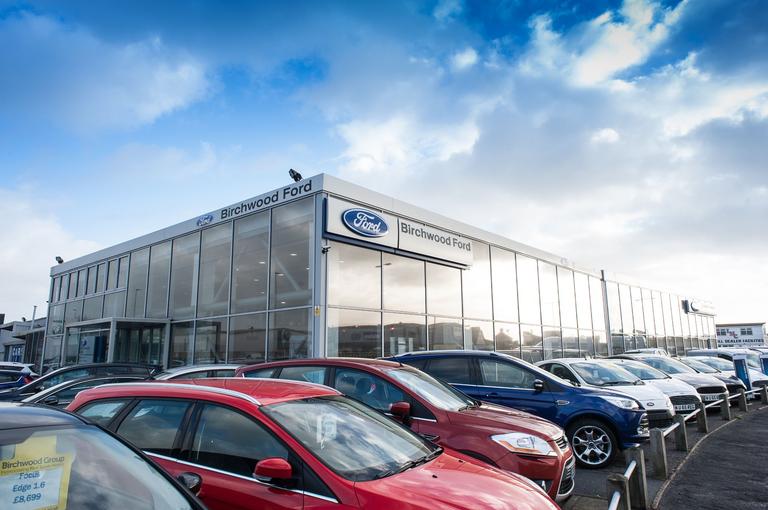
In March, Toyota appointed Julia Hamp as the new managing officer of Toyota Motor North America. Hamp is the first female and non-Japanese executive of the automotive company.
This appointment came after a number of recent promotions of women in key posi¬tions as the global gender gap in automotive industry leadership roles began to narrow.
Lena Allison, diversity and inclusion manager at Ford tells Motor Finance: "When you look at the industry as a whole, there are female chief programme engi¬neers, vice-presidents and chief executive officers.
"Currently 12% of our board of directors are women, while the proportion of female corporate officers rose from 10% to 16% in just over a year. In 2013, among our global salaried workforce approximately 26% were female."
Despite the lack of official statistics on the number of women in the UK motor industry, anecdotal evidence shows a real lack of diversity.
Vehicle finance director at the National Association of Commercial Finance Brokers (NACFB) Graham Hill says that poor representation of women is more noticeable among UK dealerships and especially brokerages. He believes that only around 25% of dealers are women and that the figure is much lower for brokers.
How well do you really know your competitors?
Access the most comprehensive Company Profiles on the market, powered by GlobalData. Save hours of research. Gain competitive edge.

Thank you!
Your download email will arrive shortly
Not ready to buy yet? Download a free sample
We are confident about the unique quality of our Company Profiles. However, we want you to make the most beneficial decision for your business, so we offer a free sample that you can download by submitting the below form
By GlobalDataHe explains that there’s a better mix in dealerships than brokerages, because people can move to dealership sales from a sales background.
On the other hand, he says that broker¬ages prefer to recruit experienced brokers from other companies. Due to a historical lack of females entering the industry since its inception, these experienced brokers are overwhelmingly male. Hill says that this is creating a vicious circle, which limits the scope of a more diverse workforce.
Hill highlights that there are only a couple of cases of brokerages being run by women. "Brokerages traditionally have not attracted too many women. If you look at the NACFB board, there’s only been one woman representative in the last probably 10 to 15 years. We have 12 broker repre-sentatives on the board, so that’s indicative of the mix that we have had throughout the industry," he adds.
Among lenders, there are a number of firms which have diversified their team over time. Amanda Hardcastle, HR and learning business partner at Close Brothers Motor Finance, says that at Close Brothers Motor Finance there’s a 50-50 split in terms of gender. Despite some key roles already being filled by women, Hardcastle believes more work needs to be done to achieve a better mix at senior level.
Commenting on the overall low number of women in the UK motor finance industry, she says: "This might be a result of women not viewing the industry as a career option. I think within the head office type functions, those barriers are being chal¬lenged quite dramatically and effectively. Perhaps there are more challenges out in sales roles, where the biggest challenge is to encourage women to see them as a suitable career."
The industry professionals Motor Finance speaks to, agree that the low gender diversity in the industry may be due to a supply issue, with relatively low levels of job applications coming from women.
Some companies and associations have identified this issue and introduced a range of initiatives to combat it. Close Brothers had an open day at its London head office for female graduates to get information about all of the company’s divisions.
Hardcastle explains: "There’s a strong business case for having a balanced team. Inclusive and diverse teams are more likely to be effective. Companies benefit from fresh perspectives, new ideas and broader experience. A diverse team gives a more bal¬anced view that reflects the one of customers, allowing companies to be more responsive to the market as a large proportion of customers are female.
At the same time by being open to diversity they can access a wider talent pool, ensuring they employ the best person for each position."
Talking specifically about brokerages, Hill claims they have always operated in a specific way. He believes women can bring different ideas and viewpoints into the system. "They can shake up the industry a little bit as they have done with other parts of finance, like the insurance sector," he says.
The positive influence of gender diversity on driving innovation is highlighted by Ford Motor Company.
"We believe that diversity makes us a stronger company by bringing in new per¬spectives and experiences. Having a diverse workforce enables us to design products to suit a variety of customer needs. Diversity breeds innovation," says Allison.
The NACFB has received comments that there’s a lack of female representation in the broker industry. The association is planning to introduce better forms of education on broker finance, aiming to attract young males and females.
According to Hill, young individuals entering the industry are not solely important for a better gender mix, but also for the sustainability of the sector. He says there are fears that the supply of new brokers will not be enough to replace those who are retiring.
"We’re going to lose a lot of brokers out of the industry, as they’re getting older, and there’s no new blood coming into the sys¬tem. We see a real lack of enthusiastic youngsters coming into the industry, male and female," says Hill.
Furthermore, Hardcastle suggests that partnerships with universities could raise awareness of the motor finance industry and display some of the opportunities available in motor finance to university gradu¬ates who "usually look for more traditional opportunities".
"This could break down barriers for women to see that actually the industry is no different than any other. In addition, they could see that they can play a really important part in driving the change and adding value.
Gender diversity in the UK motor finance industry is falling behind the levels found in the global automotive industry and other financial services. Despite the increased number of women in parts of the industry, it is clear that there is still some distance to cover.







